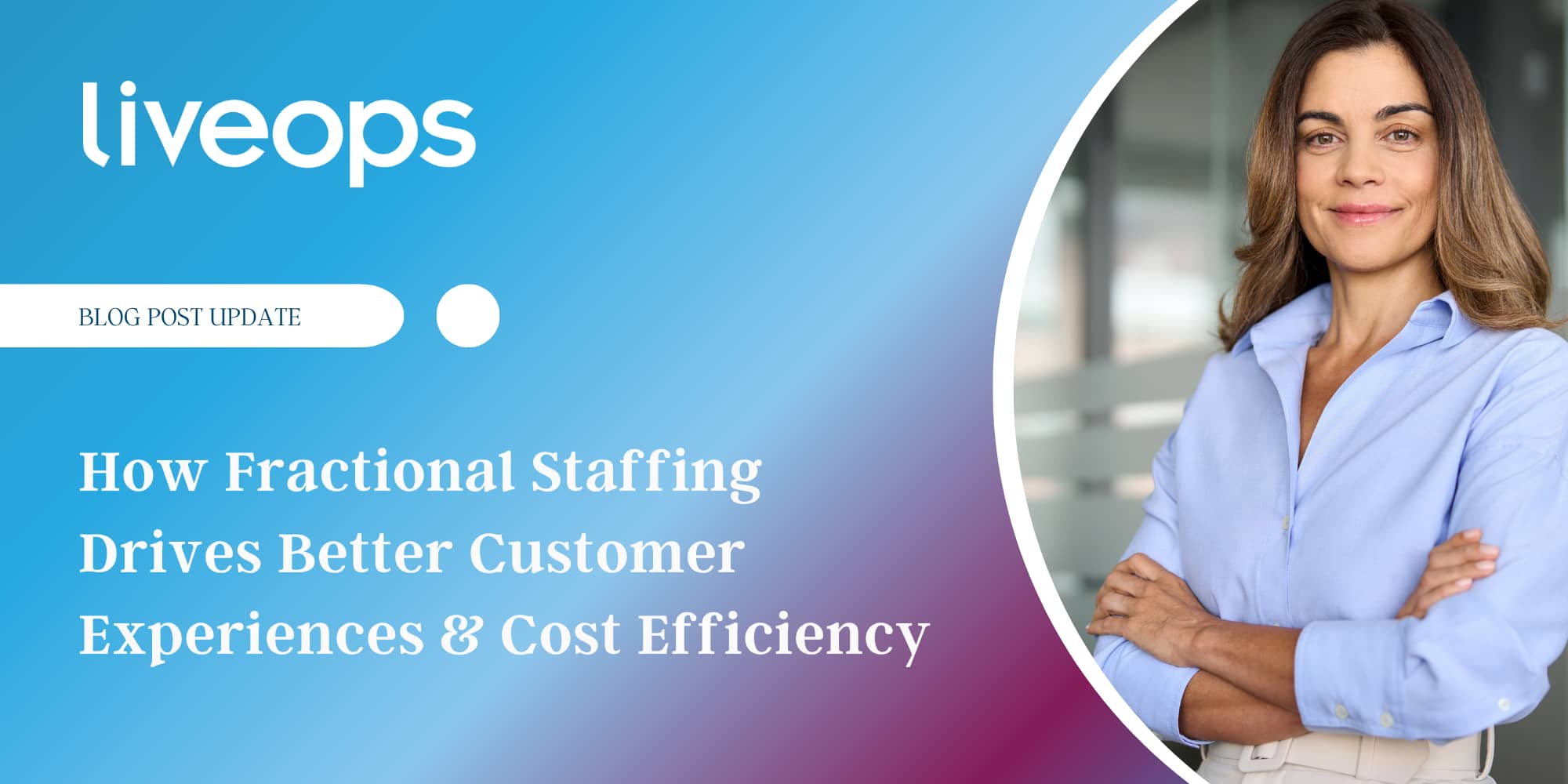Why great customer service contact center agents quit
minutes
Listen to the Article

Contact center work hasn’t evolved with workers’ needs, agents say
The first word Lourdes used to describe her work in a contact center was “nightmare.”
“You’re really, really micromanaged there,” said the Florida-based Liveops agent. “And when I worked there, I was always sick. There’s 200, maybe 300 people in a contact center. Whoever doesn’t have a cold has something else and passes it around, so you always get sick.”

“The traffic and the commute is also a nightmare. If you live outside the city and have to go into a contact center, it’ll take you hours.” Lourdes described her typical contact center workday of 12 to 14 hours, including her commute time and lunch break, which left little time for her family and passions as an artist and alpaca enthusiast.
And her experiences are not an exception—we learned from other former traditional contact center agents the dirty truth about the work environment and why so many of them walked away. Here are 12 reasons great agents would never step foot back in a contact center:
- Glue your butt to the seat. You are allowed the minimum legal number of breaks (typically, two, 15-minute breaks plus a 30-minute lunch), but otherwise you are expected to be in your seat, on your headset and computer, at all times.
- Long commutes, parking hassles, wear and tear on a car or a less-than-comfortable commute on transit.
- Rigid schedules, full-length shifts with established hours that don’t jive with daycare hours, dentist appointments, and school holidays.
- contact centers can be a germ factory—the close quarters of cubicles tend to circulate sickness.
- Time off can be tough to take, especially around holidays when call volume spikes but more agents want to be on vacation.
- Forget the water cooler conversations. There’s no time to chat like in a regular office, because you need to be on the phone—and so does the guy in the next cubicle.
- Bring on the junk food. contact centers are stocked with caffeine and many agents noted that vending machine junk food or donuts were the only quick and easy snacks.
- No surfing allowed. Every aspect of your screen time is monitored, including every site you visit. And no checking Facebook on your phone—that has to be stored in a locker away from your desk.
- No personalization. Most personal items can’t be stored on your desk. contact center security protocols prohibit pens and paper on desks to prevent theft or fraud (such as writing down a customer’s credit card number and using is later). Despite these restrictions, brick and mortar contact center agents are still 300% more likely to commit larceny or theft compared to agents who work from home, according to the FBI Uniform Crime Report.
- No opportunity for advancement. Most contact center workers stay for just a few years, some much less, and there’s little personal investment in the job.
- No choice in the companies you represent. You might have to work for brands you dislike, or sell products you don’t understand.
- Constant monitoring. From supervisors looking over your shoulder to daily KPIs (key performance indicators) an agent must hit, there is little room for error. And because of the high turnover, agents are often seen as expendable, so many live in constant fear of being dismissed for a bad week or month.
With so many negatives, what’s the alternative for people with great skills and phone presence who enjoy customer service and sales?
Many agents who work for Liveops say they’ve found a perfect alternative to the contact center by being a virtual agent—working from the comfort of home. This is especially important for people who have a disability that prevents them from working in or commuting to a traditional contact center environment.
Virtual agents for Liveops are able to choose their work schedule and the brands they represent. And as independent business owners, they can decide how much to earn and work around their lives.
Lourdes said, “If I don’t want to work a certain hour, I don’t work a certain hour. If I want an hour to go pick up my daughter, I pick up my daughter.” Her comments were echoes by other Liveops agents, who have deep expertise in customer service and sales, but no more tolerance for the frustrations of contact center life.
This flexibility benefits companies who encounter spikes in customer service demand, either seasonally, at certain times of day, or due to holidays and promotions or unexpected events. Agents are paid for the time they actually work, rather than being paid to sit idle in a contact center.
Offering a modern approach to customer service contact center services attracts the most skilled domestic agents possible—many of whom are disenchanted by traditional contact centers. In fact, flexible, virtual work attracts agents who are more mature, have three times more work experience than their traditional contact center counterparts, and 81% have college education compared to just 35% in traditional contact centers.
Read more about agent quality in our whitepaper.




